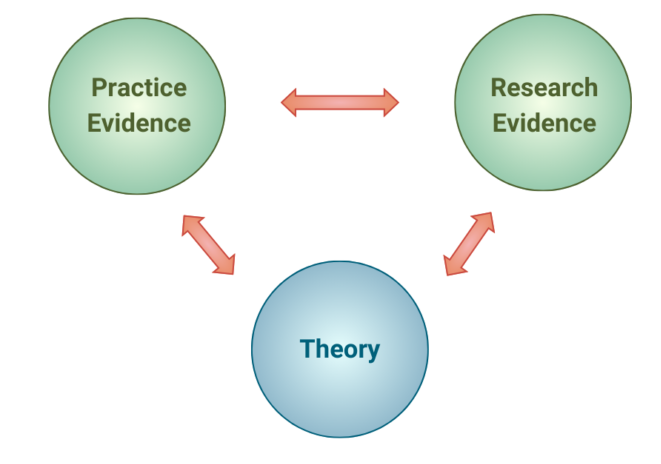Introduction to Learning Theories Series
Presented by Joe Tise, PhD, Educational Psychology & Senior Education Researcher at CSEdResearch.org
If data is a pile of bricks, theory is a building plan. Used together, a house can be built and a valid representation of truth can be uncovered.
The traditional view of education research would say data without theory is no more useful than a pile of bricks without a building plan. This understanding is at the heart of traditional quantitative educational and psychological research. Quantitative educational researchers view theory as integral to the relationship between research and practice because it gives rise to causal hypotheses and, in turn, informs action.
However, one may (convincingly) argue that recent developments in artificial intelligence (AI), data mining, machine learning (ML), and large-language modeling (LLM) uncover deep insights and relationships despite not being driven by a particular a priori theoretical perspective. While this is certainly true, I argue that researchers still must construct theoretical models (broadly construed) to make sense of the patterns and insights uncovered by these empirical methods. There is some inherent utility in using AI or ML to discover, for example, that students’ user log data in a learning management system can predict their eventual GPA or likelihood of dropping the course. But understanding why these relationships exist requires theoretical musing, which so far cannot be accomplished via AI or ML.
Further, as a qualitative researcher may be quick to point out–some research questions are simply too cutting-edge to be grounded in theory a priori. Save for truly exploratory research (where very little or even no prior research exists), educational researchers will tend to engage a theory either as a guide prior to data collection or explanatory mechanism after data analysis–whether that theory is robust with decades of empirical support or more fledgling and known only to the researcher.

As one manifestation of educational research, computer science education (CSEd) research needs to be grounded in established educational theory and/or generate new theory where established theory falls short. Fortunately, nearly 100 years of educational research have already passed. The fruits of this research are four prominent theories about how learning occurs: Behaviorism, Information-processing, Social-cognitive, and Constructivism.
In this four-part series, I introduce and briefly overview each theory and in doing so, I forward a paraphrased definition of the (nebulous) term “learning” associated with each theory, outline central assumptions, explicate strengths and limitations, and recommend several seminal works for each theory of learning.
I encourage education researchers who wish to research the learning phenomenon to pay attention to each. If you have limited time, however, I suggest paying special attention to the posts and subsequent recommended readings on information-processing and social-cognitive theories, as these two theories undergird much of contemporary educational research (whether these theories are explicitly mentioned in publications or not) and have shown prowess in explaining the complicated web of influences on human learning.
Series:

Comments are closed